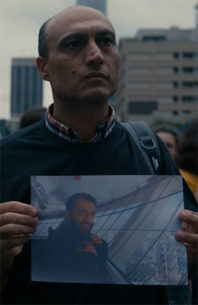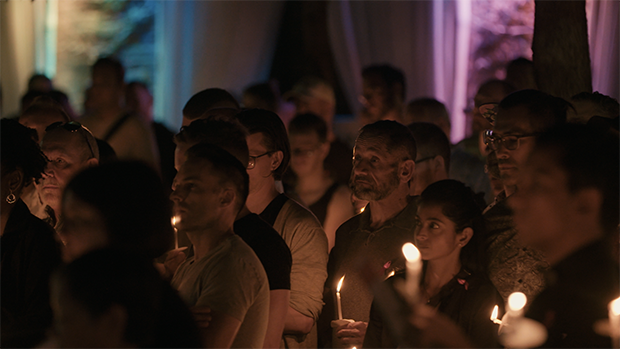
Who should a documentary about Bruce McArthur focus on? Should it focus on the police? On Toronto’s chief Mark Saunders who was lying about a serial killer targeting gay men? Saunders’ decisions before the revelation of McArthur’s existence is a sticking point here. Before everyone knew about McArthur, Saunders warned gay men not to use dating apps. As if it way for gay men to find love or death. Now that we all know about McArthur, outsiders defend Saunders’ lies by calling it a tactic. He would have never used that tactic had the victims been blonde co-eds. But the victims here are South Asian or Middle Eastern gay men.
Instead, Michael del Monte’s CBC POV documentary Village of the Missing has a wider scope. Sure, it takes time to show the police’s press conferences. But it also talks to educators like Anthony Mohamed. Mohamed specifically provides his insight on why gay men of color became McArthur’s targets. Or what McArthur looked for in men who eventually became his victims. The media did and still does paint him as an avuncular figure. To me he just seemed like a regular guy whose appearance didn’t elicit either niceness or distrust. His ‘nice guy’ reputation is nonsensical, but his victims saw him as a man they could be safe with.

The other point of del Monte’s focus is on the community leaders representing the victims. And this is what separates this from other movies about serial killers. One of his subjects is a man who helps fellow Iranian LGBT refugees to get into Canada. Like most of them he fell victim to systemic oppression, which included physical or sexual assaults. And he reveals his version of the Middle Eastern LGBT experience and the dualities within it. That they, like most people, look for love and safety. But there’s a fatalist reaction during the moments when they receive the opposite. Especially within the people they think they could trust.
Del Monte goes to the crime scenes where the bodies are. He also travels to Turkey where some Iranian LGBT refugees hide out, waiting to go to safer countries. At first, this feels like an unwieldy distraction to a story that feels local. Any other documentary filmmaker would have beat on McArhur’s jail cell to ask him questions. But del Monte’s aims in going to Turkey feel ambitious especially for a TV documentary. He shows the refugees’ tears in wanting to help more people than the latter can. And that’s a better emotional tone than the macabre sense that most docs use when handling this sensitive topic.
It’s also available to stream via the CBC GEM service.
- Release Date: 3/22/2019

